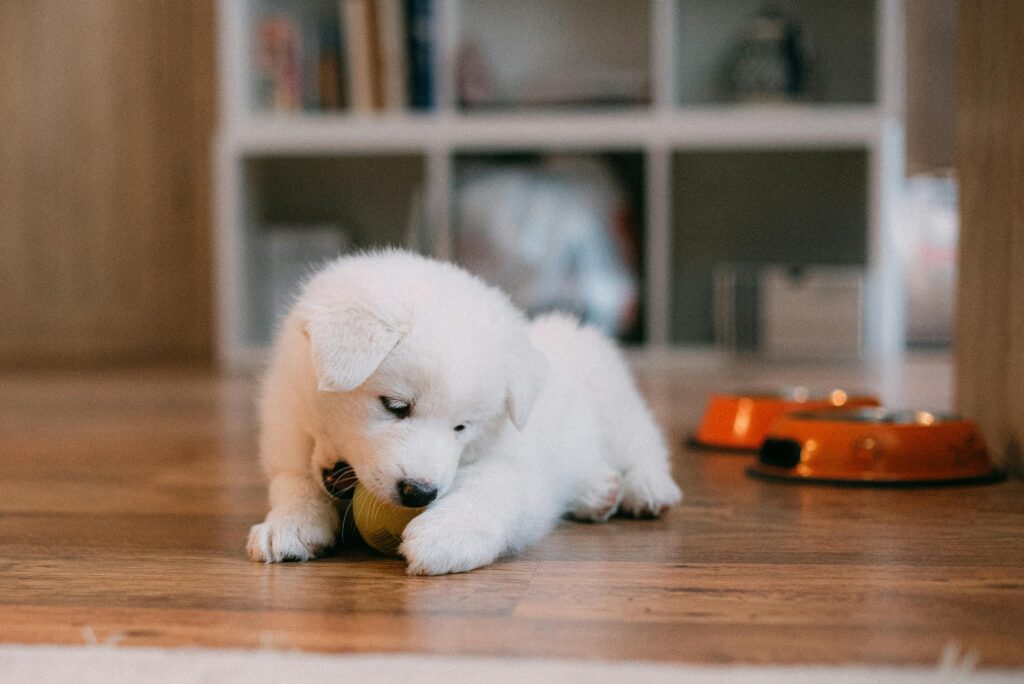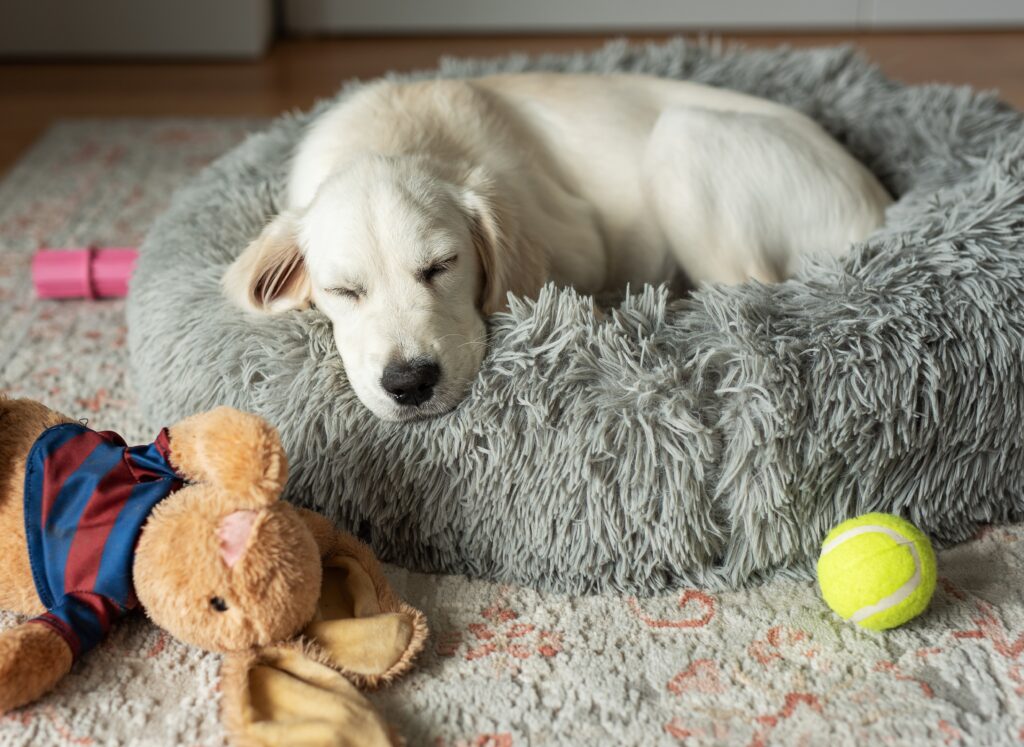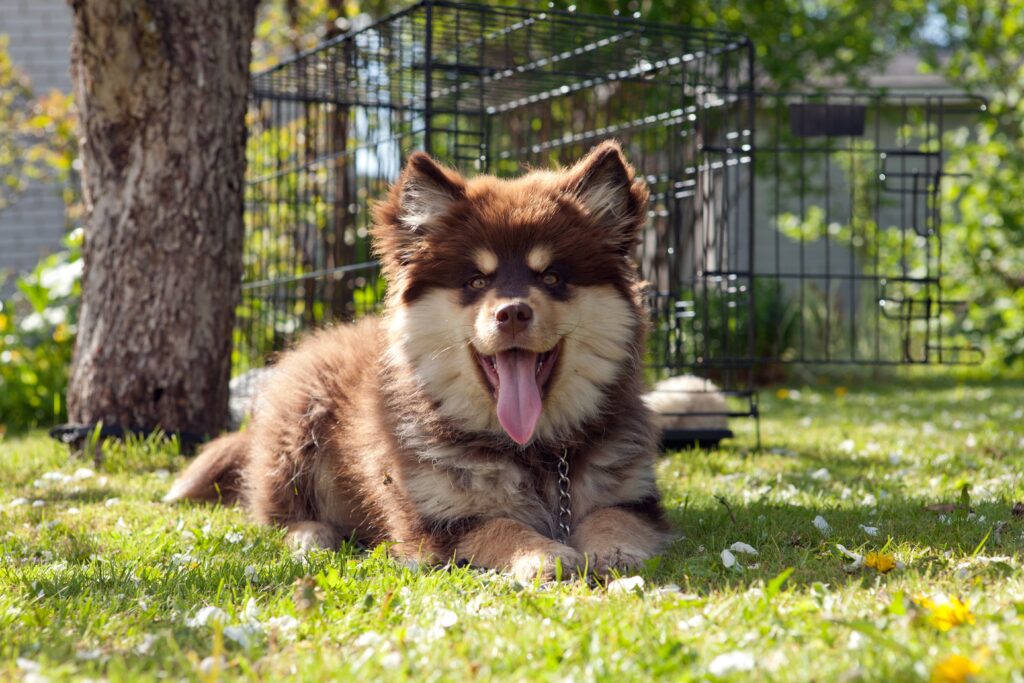Choosing the right puppy from a litter involves observing their behaviors and personalities. Here are key behaviors to look for that can help you determine which puppy might be the best fit for your lifestyle and family:
Contents
hide
Socialization and Interaction
Curiosity and Playfulness
- Engagement – Look for a puppy that shows curiosity and is eager to explore its environment. Playful puppies tend to engage with toys and interact with their littermates.
- Approachability – A puppy that approaches you confidently and seeks attention is often more social and adaptable.
Comfort with Humans
- Willingness to Be Held – Observe how the puppy reacts to being held or cuddled. A puppy that is comfortable with human interaction is likely to develop a strong bond with you.
- Vocalization: A healthy puppy may bark or whine but should not be excessively vocal or seem fearful when approached.
Temperament and Personality
Confidence Level
- Balanced Behavior – Look for puppies that display a balance of confidence and calmness. Puppies that are overly dominant or timid might require more training and socialization.
- Exploration vs. Fear – A confident puppy will explore new areas, while a fearful puppy may hesitate or back away from new experiences.
Play Behavior
- Interaction with Siblings – Observe how the puppy interacts with its littermates. Healthy play behavior includes taking turns, sharing toys, and showing appropriate boundaries.
- Reaction to Discomfort – Watch how the puppy reacts when play gets a bit rough. A puppy that can give and take will likely be easier to train and socialize.
Energy Levels
Activity Level
- Energetic vs. Calm – Pay attention to the energy levels of the puppies. Some breeds are naturally more energetic, while others are more laid-back. Choose a puppy whose energy level matches your lifestyle.
- Focus and Attention – A puppy that can focus for short periods and engage in play is often a good sign of a healthy temperament.
Resting Behavior
- Resting Calmly – A puppy that can settle down and rest calmly shows signs of being well-adjusted. Puppies that are constantly hyperactive may require more exercise and training.
Health and Physical Condition
Signs of Good Health
- Physical Appearance – Look for clear eyes, a clean coat, and a healthy weight. Puppies should not appear lethargic or show signs of illness.
- Mobility – Observe the puppy’s movement. Healthy puppies should be active, playful, and able to move without any issues.
Behavioral Reactions
- Sensitivity – Gently examine the puppy’s paws, ears, and mouth to see how they react. A puppy that is comfortable with handling is more likely to be well-adjusted.
- Vocalization During Handling – While some vocalization is normal, excessive whining or fear when being handled may indicate anxiety or a lack of socialization.
Bonding Opportunities
Engagement with You
- Following You – A puppy that follows you around or seeks your attention may have a natural inclination to bond with you.
- Seeking Interaction – Pay attention to whether the puppy initiates interaction, whether through play or cuddling.
Positive Reactions
- Tail Wagging and Play Bowing – Look for behaviors like tail wagging, playful bows, and jumping around, which indicate excitement and willingness to engage.
When picking a puppy, observe their socialization, temperament, energy levels, and overall health. Each puppy has a unique personality, and finding one that aligns with your lifestyle will lead to a more harmonious relationship. Take your time to interact with the puppies and trust your instincts in making the best choice for you and your family!


